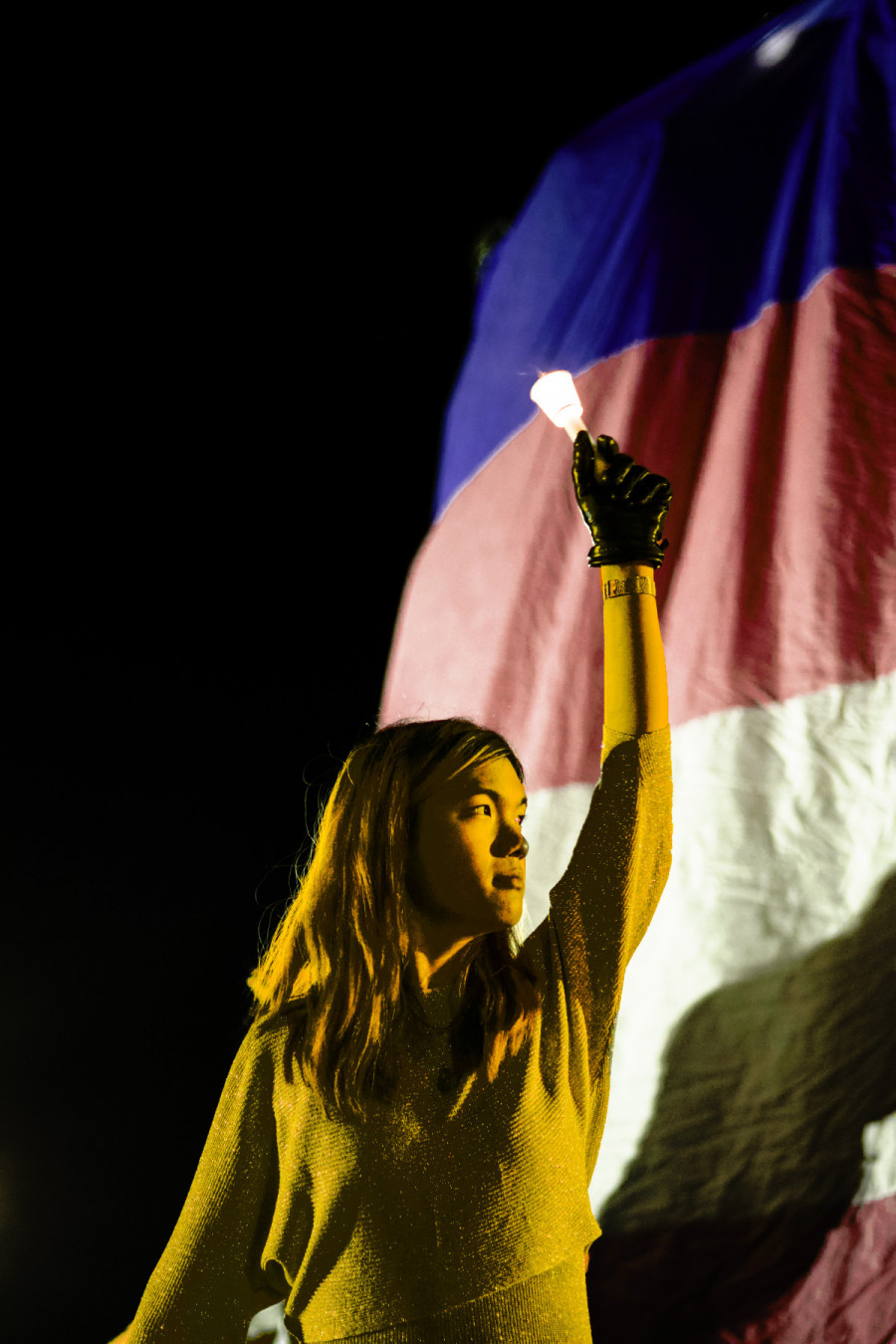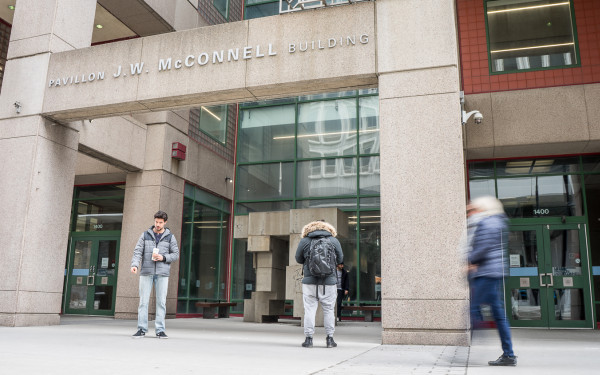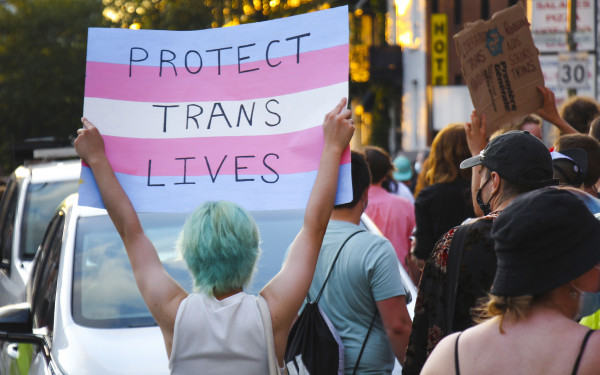Where gender and class intersect
Q&A with Celeste Trianon
Celeste Trianon is a transgender activist and jurist. She has helped organize the Transgender Day of Remembrance March and the pro-trans counter-protest in 2023, and worked with the Centre for Gender Advocacy’s trans ID clinic.
The Link had a sit-down interview with her to discuss the many ways in which gender identity, expression and perception vary with socioeconomic class.
Answers have been edited for clarity.
How do class and gender intersect and how does that manifest in day-to-day life?
Imagine a worker making their way up the ranks of a company. Let’s say the worker was assigned male at birth and was presenting male all that time. They would have never seen many difficulties associated with their gender because they have access to a certain degree of privilege. Now imagine that worker transitions to a woman. They end up getting fired for it and are unable to get hired at any other job because of the fact they’re a trans woman. A couple months later they run out of unemployment insurance and their savings run out and they eventually find themselves homeless. That is not an impossible scenario and that’s oftentimes just an example of what happens to trans people in the workplace.
Class and gender intersect as in that they correlate with one another, unfortunately. They are interconnected and it’s impossible to say that somehow gender is completely disconnected from class and vice-versa. The very fact is that there is so much sexism, gender-based violence, and gender-based oppression in our society that your gender identity, your gender expression, the way you express yourself, the way you assert yourself; all of this is going to play vastly into determining which class you end up in. Whether you have access to privilege or not, and so much more, it all hinges on that.
How do you think higher and lower-class individuals tend to view gender?
Oftentimes, folks in the upper echelons of wealth are able to make a living on relatively minimal effort as they have “won the game of capitalism.” In health care, for instance, they might be less dependent on classist doctors who may end up hurting women and gender diverse people the most. They might be completely immune to that.
The way you experience gender as a wealthy person is going to be very different from the way you experience it as a lower income person. The same goes for so many other factors too. Being a single parent, being a single mom; it’s not easy and can easily force you to overwork and be unable to access forms of privilege in the first place. The way you experience gender as someone who is wealthier or less wealthy absolutely plays a role here.
Do you think class exacerbates gender differences?
Absolutely, yes. To go back to our previous example of someone who transitioned on the job, let’s imagine they are already quite wealthy. They might no longer have a conflict to deal with. If they had that privilege, they would be able to afford everything they need, any gender-affirming surgeries, any clothes or treatments they need to better affirm themselves.
If someone on the streets transitions, it’s not going to be easy for them. They might not be able to afford any clothes, even second-hand used ones, that can affirm their gender. They might not be able to get health care if they lack an address. All of this pushes them to a point where their transness is not something they’re able to live with and their class prevents them from living their best life.
On more general fronts, class differences exacerbate the way you experience your gender. It can make it harder to be able to access health care, sanitary products (tampons, pads, and the like) and so many other things that can offset the very burden that oftentimes comes with so many gendered experiences in life.
Do you think that internalized homophobia and transphobia relates to class?
I’d say in good part, it can. I’m not going to say that it absolutely will because I don’t have the expertise and empirical research to back it up, but I can say that from so many people I’ve chatted to from my work, it absolutely does.
Taking the example of someone who is unable to access health care, they may not perceive themselves as valid only due to the fact they are unable to afford gender-affirming health care. Poverty runs in a cycle.
It reminds me of a common excuse used regarding what is happening in Gaza right now. It’s “hey, queer people, why don’t you head to Gaza?”—I know this sounds completely unrelated right now but trust me I’m looping back—the common response given by many queer Palestinians themselves is that they are unable to experience their lives properly because of the fact that they are already so systematically oppressed by colonization. They are not going to be able to reach a point where they can experience who they are as a gay person, as a trans person.
How does external gender-based oppression affect those of different socioeconomic statuses?
It can come in so many different forms. Wage gaps are a classic, as well as the housekeeping gap for any home-related tasks. These are things that are exacerbated by gender-based violence. So much of this is interconnected. I think the obvious answer is whether it be discrimination or physical, any form of gender-based violence exacerbates class differences and artificial gender-based differences.
Do you think that there are any aspects of trans identity that remain universal across socioeconomic status?
Trans identity is something that’s so variable—I don’t think there is any single constant. Apart from simply being trans, trans experiences can be different between everyone. It can be healthcare and hormone therapy, which are nearly universal, but not entirely. I cannot say that there is anything that is universal across all socioeconomic classes. If there is one thing that is constant, it is that gender-based and anti-trans violence exists.
What specific socioeconomic contexts allow gender discourse to flourish? And which ones can restrict them?
Gender discourse will flourish in a context in which different forms of gender-based violence have been completely eliminated. In this context, gender is no longer a variable that determines how well you’re going to be able to live in society, or what you’re going to be able to make in a year, or how safe you’re going to be within the confines of your own home. In the perfect world, you’re going to have breathing room. In a world without transphobia, there are naturally going to be more people who feel comfortable coming out as trans; in a world without homophobia there are going to be more people coming out as gay.
There is also the flip side of the coin. Some people in a society where there is so much anti-trans hate, trans people are going to be among the most vulnerable, the most marginalized. Of course there is going to be targeted violence towards them. It’s been proven that anti-trans bills and anti-trans murders are correlated with one another. Differences are exacerbated by the contexts we live in right now.
The best thing we can do right now as people is to try and confirm the root causes of the issue; making transphobia unacceptable again and making sure anti-trans hate has no space within our respective communities. Making sure sanitary products are distributed in all bathrooms, making sure that employers are held accountable if they maintain a wage gap, all of this, alongside so many extra steps, will help build a better, fairer society for all.
This article originally appeared in Volume 44, Issue 8, published January 16, 2024.



_600_375_s_c1.png)

_600_375_90_s_c1.jpg)
